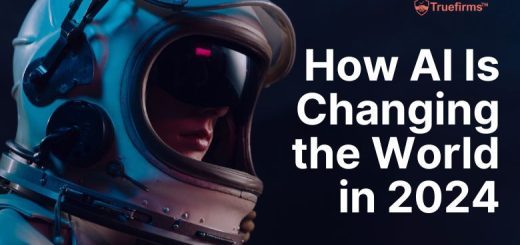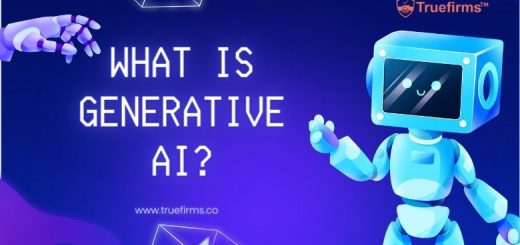5 Things To Do Immediately (AI) Artificial Intelligence

(AI) Artificial Intelligence, Have you ever heard of a computer performing your daily tasks? Or a robot who is serving food at a restaurant? Well, if this blog had been written earlier, people wouldn’t believe these things. But, we are walking about 2022 and today all this is possible.
A robot performing your daily tasks, facial detection & recognition, chatbots, E-payments, intelligent home devices, and many more are some examples of breakthrough technology, termed Artificial Intelligence.
A broad field of computer science called artificial intelligence is concerned with creating intelligent machines that can perform tasks that would typically need human intelligence.
Or in common words, Artificial intelligence (AI) is the capacity of a digital computer or robot controlled by a computer to accomplish tasks often done by intelligent beings.
All the above examples are a result of Artificial Intelligence.
You must be thinking how does AI work?
Vendors have been rushing to showcase how their goods and services use AI as the hoopla surrounding AI has grown.
A vast volume of labeled training data is typically ingested by AI systems, which then examine the data for correlations and patterns before employing these patterns to forecast future states. By studying millions of instances, an image recognition tool can learn to recognize and describe objects in photographs, just as a chatbot is a given example of how a text chat can learn to make lifelike exchanges with people.
Learning, reasoning, and self-correction are the three cognitive abilities that Artificial intelligence (AI) focuses on.
The Learning Process: This area of AI programming is concerned with gathering data and formulating the rules that will enable the data to be transformed into useful knowledge. The guidelines, also known as algorithms, give computing equipment detailed instructions on how to carry out a certain activity.
Reasoning Techniques: This area of AI programming is concerned with selecting the best algorithm to achieve a particular result.
Self-Correcting Mechanisms: This feature of AI programming is to continuously improve algorithms and make sure they deliver the most precise results.
Why is Artificial Intelligence beneficial?

AI is significant because, in some circumstances, it can outperform people at activities and because it can provide businesses with previously unknown insights into their operations.
AI technologies frequently finish work fast and with very few mistakes, especially when it comes to frequent, detail-oriented activities like reviewing a large number of legal papers to verify key fields are filled in correctly.
It would have been difficult to conceive of employing computer software to connect passengers with taxis before the current wave of AI, yet now Uber has achieved global success by doing precisely that
In order to estimate when people are likely to need rides in specific locations, it makes use of powerful machine learning algorithms, which helps proactively put drivers on the road before they are required.
The biggest and most prosperous businesses of today have utilized AI to enhance their operations and outperform rivals.
Let’s discuss the benefits and drawbacks of artificial intelligence.
In today’s world, industries including marketing, finance, data analysis, healthcare, and many more rely heavily on AI-powered solutions.
Numerous industries have benefited from AI-related innovations. More than ever, convenient technology is broadly accessible, processes are more effective, and forecasts are more precise. We’ll look at a few advantages artificial intelligence systems offer and how they simplify our life.
Enhanced Efficiency: One of the most significant advantages of AI systems is that they allow humans to be more efficient. AI may be utilized to accomplish much larger, more complicated jobs as well as
smaller, repetitive ones more quickly. Whatever their use, AI systems are not constrained by human limits and never get old.
Better Operations: AI has many useful uses for enhancing human processes, even though it is usually used to automate complete activities. Natural language processing (NLP) and automated voice recognition (ASR) are examples of deep learning technologies that have revolutionized the way people work in industries including education, media and entertainment, and law enforcement. ASR technology can automatically create transcripts of any audio or video by translating spoken words into text.
Minimizes Human Errors: Humans are more prone to distraction when an activity is repetitious. AI systems, however, don’t require focus because they are designed to perform certain tasks. And for certain tasks, AI systems remove the possibility of human error, resulting in a more accurate outcome.
Reliable Decision Making: Business executives are able to make better, more informed decisions that will improve their operations thanks to this bandwidth for deeper data analysis. Consider categorization modeling. These machine learning algorithms make an effort to get a conclusion using training data that has already occurred. The model will categorize, or “label,” fresh data after processing that training data.
Since every coin has two sides, Artificial intelligence (AI) also has some disadvantages associated with it.
High Prices: It is an impressive achievement when a machine can mimic human intelligence. It can be very expensive and takes a lot of time and resources. AI is highly expensive because it requires the newest hardware and software to function in order to stay current and meet the criteria.
Lack Of Originality: The inability of AI to learn to think creatively beyond the box is a significant drawback. AI can learn over time using pre-fed data and previous experiences, but it cannot adopt a fresh approach.
Makes Humans Lazy: AI programs automate the majority of laborious and repetitive work, making people lethargic. We tend to use our brains less and less because we do not need to memorize information or solve puzzles to complete tasks. As a result of this AI addiction, future generations may face difficulties.
No Morals: Morality and ethics are significant human traits that can be challenging to include in an AI. Numerous people are worried that as AI develops quickly, humans will one day become completely
exterminated by it.
Knowing AI’s benefits and drawbacks, we might conclude that it has enormous potential to improve the quality of life for people everywhere. Making sure that the development of AI doesn’t spiral out of control will be the most crucial task for humans. Artificial intelligence (AI) has both disputed advantages and disadvantages, but there is no denying that technology is having a significant impact on the world economy. It keeps expanding every single day, promoting corporate sustainability.
In the few decades that it has existed, AI has already benefited society in both large and little ways. As computer science continues to improve, you can anticipate exciting new advancements and discoveries. These sophisticated devices have improved productivity in the workplace and general convenience. AI applications, which already include Alexa, large data warehousing, and premier speech recognition technologies, are probably just going to get better over time











